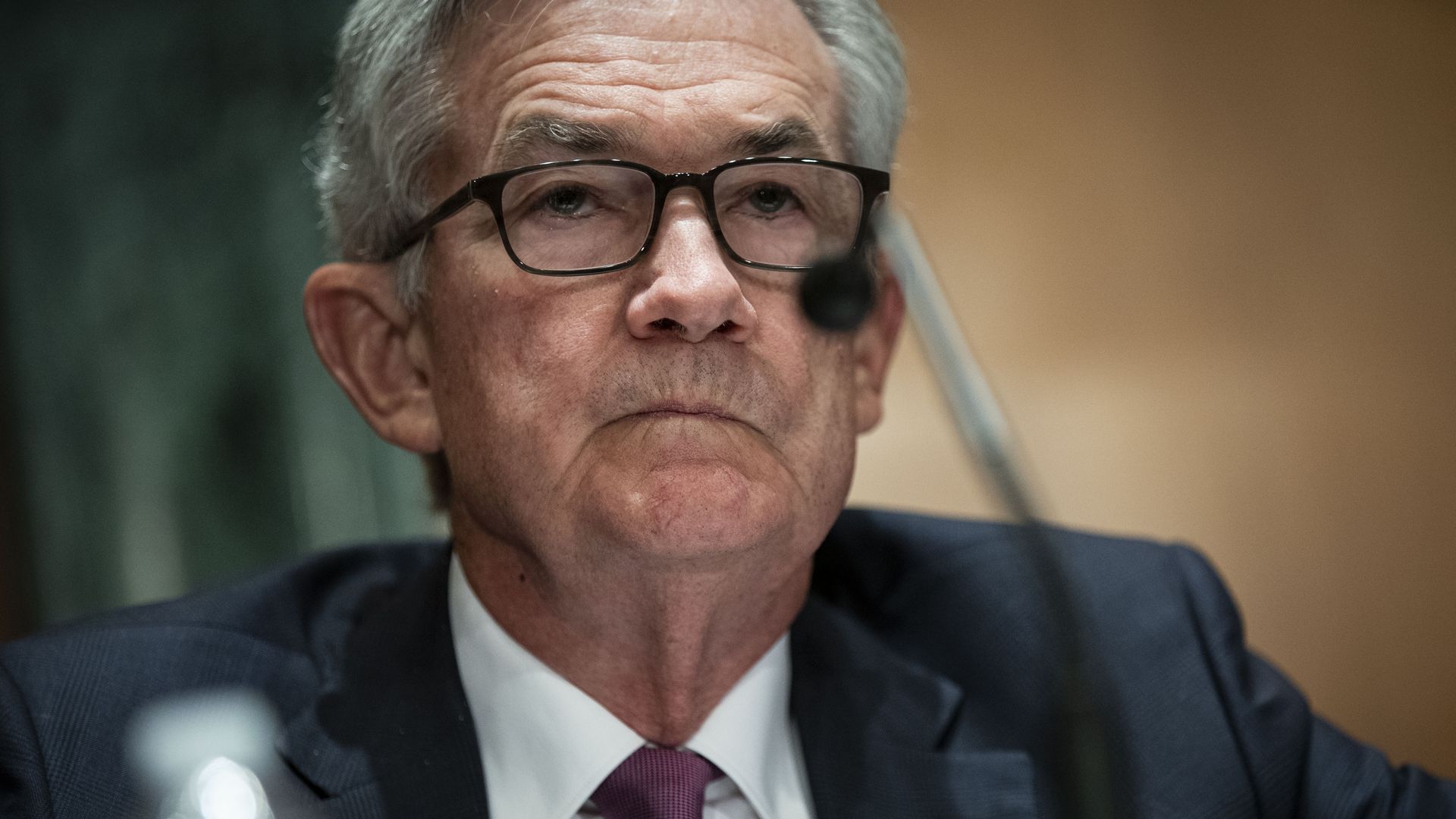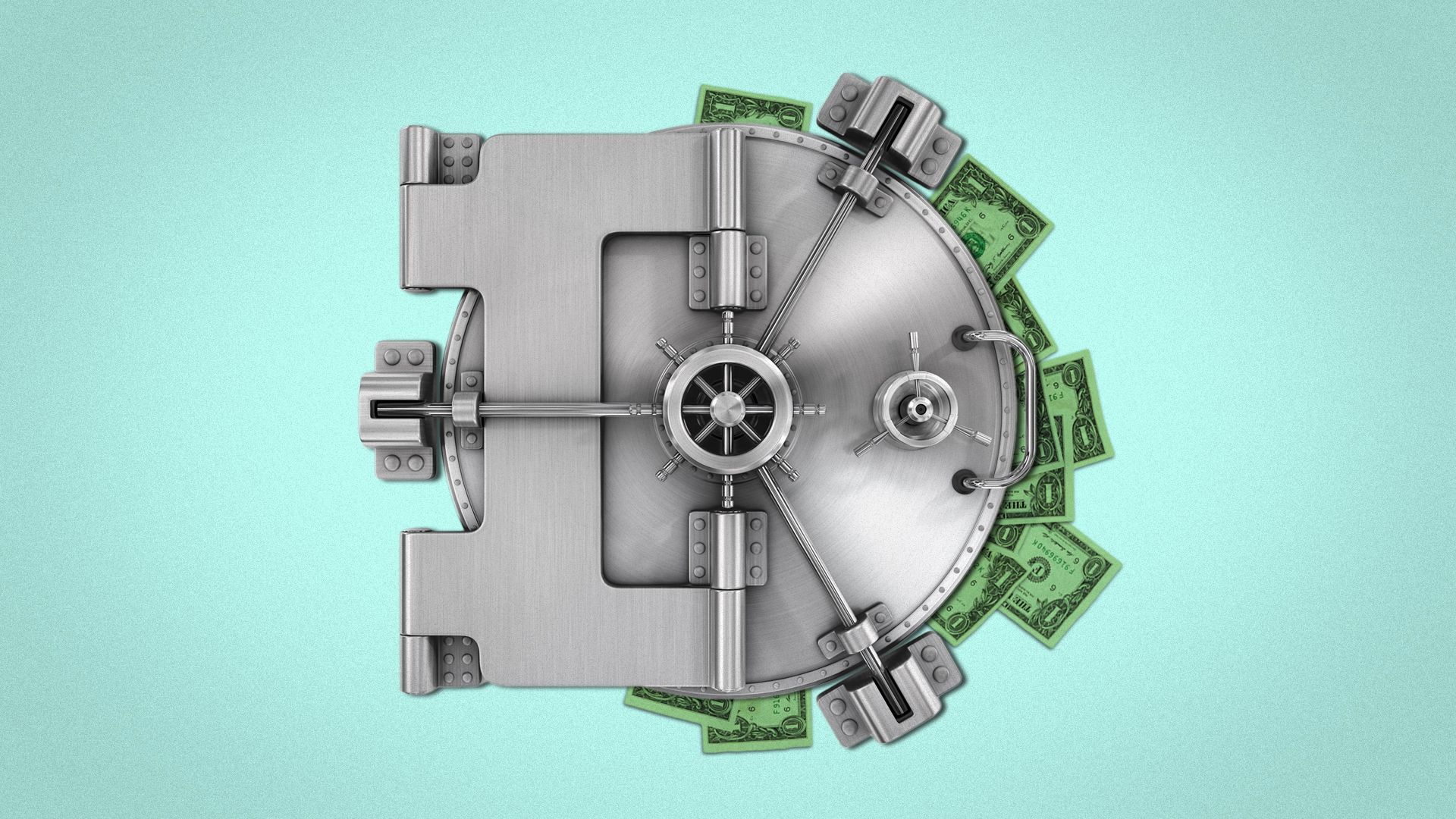| | | | | | | Presented By Anatha | | | | Axios Markets | | By Sam Ro ·Sep 17, 2021 | | Today's newsletter is 1,295 words, 5 minutes. 🚨 Situational awareness: Today's my last day at Axios. Some of you will remember that I'm obsessed with covering labor turnover stats, so the irony of my brief tenure is not lost on me. - As I head to my next opportunity, rest assured you're in great hands with the awesome Axios team. Aja Whitaker-Moore will be in your inbox on Monday.
| | | | | | 1 big thing: Delta didn't slow shoppers |  Data: FRED; Chart: Axios Visuals Consumers defied expectations and shopped at an increasing rate amid a resurgence in COVID-19 cases. Why it matters: Several measures of consumer confidence fell sharply in August, suggesting consumer spending could fall during the month. In fact, concerns about the Delta variant's impact on the economy had prominent Wall Street economists cutting their expectations for Q3 GDP growth. Yes, but: Retail sales in August unexpectedly rose 0.7% month over month. Economists were expecting a 0.7% decline. By the numbers: Excluding autos and gas, sales jumped by 2% to $448 billion. Economists were expecting no growth in this metric. - Leading the way was online retail, which jumped 5.3%. Furniture and home furnishings sales climbed by 3.7%. Department store sales rose by 2.4%.
- On the weak side, motor vehicles and parts sales fell 3.6%. Electronics and appliances sales declined by 3.1%. It's worth noting that these are both categories that have been affected by chip shortages.
What they're saying: "Confidence may have plunged, but rising incomes, employment and accumulated savings mean that people continue to spend," ING chief international economist James Knightley said. - "Upside surprises on this scale don't come often, and this one indicates a real degree of resilience on the part of consumers," Pantheon Macroeconomics chief economist Ian Shepherdson noted.
Between the lines: On one hand, low inventories due to supply chain issues may have limited some retailers' sales. On the other hand, expectations for shortages and the desire to avoid crowds may be pulling forward some holiday sales. - According to a CreditCards.com survey flagged by CNBC, 13% of shoppers planned to begin their holiday shopping as early as August because of these reasons.
Threat level: "Data on the worst effects tied to the spread of the Delta variant and disruptions from Hurricane Ida are still ahead of us," Grant Thornton chief economist Diane Swonk said. - "This is at the same time that the additional support to unemployment insurance for millions has expired. We are poised to eke out a very modest gain for consumer spending during the quarter."
The bottom line: Consumers have proven incredibly resilient, sending retail sales well above pre-pandemic levels. - While risks to spending linger, consumers continue to have the capacity to spend at a rising clip. More on that later in this newsletter.
|     | | | | | | 2. Catch up quick | | China has applied to join the Comprehensive and Progress Agreement for Trans-Pacific Partnership, the trade pact abandoned by then-President Donald Trump. (AP) JPMorgan is launching a digital retail bank in Britain, its first overseas retail offering. (Bloomberg) Business confidence among Japan's large manufacturers fell in Q3 amid the spread of the COVID-19 Delta variant. (Reuters) |     | | | | | | 3. Fed takes on its own trading rules |  | | | Fed chair Jerome Powell; Photo: Al Drago/Getty Images | | | | New disclosures that showed Fed officials were active in financial markets set off a firestorm of criticism. Now the Fed may overhaul the long-standing rules that allow those transactions, Axios' Courtenay Brown writes. Why it matters: What officials actively traded was sensitive to the Fed decisions they helped shape, including the unprecedented support that underpinned a massive financial market boom. - "Chair Powell late last week directed Board staff to take a fresh and comprehensive look at the ethics rules around permissible financial holdings and activities by senior Fed officials," a Fed spokesperson said in a statement Thursday.
Catch up quick: All of the regional Fed bank heads released financial disclosures for 2020 — but two raised eyebrows: Robert Kaplan (Dallas) and Eric Rosengren (Boston). - Kaplan made multiple million-dollar stock trades (including in names like Tesla) plus other investments, while Rosengren invested in real-estate tied assets.
The intrigue: Their activity didn't violate Fed rules. Ethics officials at the respective regional banks review disclosures. How it works: A spokesperson said additional rules specific to Fed officials are "stricter than those that apply to Congress and other agencies." - Fed officials (and some staff) are subject to a "blackout period": no trading 10 days ahead of policy meetings through midnight of the final meeting day.
- They also can't own bank stocks and are restricted in ownership of government securities: for instance, they can own Treasury bonds as long as holdings aren't valued above $50,000, per a conduct guide, last updated in 2017.
But while Fed chair Jerome Powell is required to report transactions above a certain threshold within 30 days (like other top government officials), Fed bank presidents don't have to do that. The bottom line: In statements that came minutes apart last week, Kaplan and Rosengren said they would dump their individual stock holdings by Sept. 30 — and won't trade stocks while in their posts to avoid "even the appearance of any conflict of interest." - Of note: The conduct guide already cautions officials to "avoid any dealings … that might convey even an appearance of conflict between their personal interests, the interests of the [Fed], and the public interest."
|     | | | | | | A message from Anatha | | Anatha is crypto for the 100% | | |  | | | | ANATHA is a new kind of cryptocurrency built on the radical belief that economic systems should serve everyone. We decentralize the flow of money, connecting people to real value on a platform that is 100% accessible to 100% of everybody. Learn more. | | | | | | 4. The consumer's massive "war chest" |  | | | Illustration: Megan Robinson/Axios | | | | Economists expect the pace of economic growth to cool off now that government transfer payments like stimulus checks and emergency unemployment benefits are in the rearview mirror. But evidence suggests that the U.S. consumer is sitting on a lot of financial firepower that could be a key driver of growth in the quarters to come. Why it matters: U.S. consumer spending is massive, representing about 70% of GDP. What they're saying: "Sustainability of US consumer spending as stimulus support wanes has been questioned by some investors," Dubravko Lakos-Bujas, JPMorgan head of U.S. equity strategy, wrote in a research note Wednesday. - "We disagree with this negative narrative which underestimates the robustness of consumer balance sheets and more pointedly the savings war chest in place to support future spending."
By the numbers: During much of the pandemic, personal incomes far outpaced spending. Incomes were boosted by fiscal stimulus while spending was depressed amid lockdowns. - When adjusting for how much consumers typically save, the excess savings accumulated during the pandemic amounts to around $2.4 trillion.
- "These significant 'excess' savings should more than buffer headwinds that consumers may face from decreasing government stimulus payments and rising consumer prices," Lakos-Bujas argued.
Yes, but: This estimate doesn't account for how much money was used for paying down mortgages, paying off student loans, or even funding a brokerage account. - "I'm leery of thinking about this as though it were some giant piggy bank just waiting to fuel some bacchanalian spending spree once we get past the worst of the pandemic," Wells Fargo senior economist Tim Quinlan tells Axios.
The bottom line: The average consumer has some combination of extra cash and lower debt. |     | | |  | | | | If you like this newsletter, your friends may, too! Refer your friends and get free Axios swag when they sign up. | | | | | | | | 5. America fought the pandemic economy — and won |  | | | Illustration: Sarah Grillo/Axios | | | | The U.S. economy is emerging from the pandemic with more well-paying jobs for those who want them, less hunger, less poverty, higher wages, less inequality, and more wealth for everyday Americans, Axios' Felix Salmon writes. Why it matters: None of these outcomes were expected when the pandemic began. All of them are the result of massive government programs. By the numbers: Stimulus checks lifted nearly 12 million Americans out of poverty, according to new census data this week. Government programs also saved millions of people from losing their health insurance, even as millions lost their jobs. - Headline unemployment stands at 5.2% — low, but still higher than the pre-pandemic rate of 3.5%. The true unemployment rate, however, as measured by the Ludwig Institute for Shared Economic Prosperity, tells a different story.
- Overall, true unemployment — people who are looking for full-time jobs that pay a living wage, but can't find one — stands at 22.8%, which is lower than the 24% rate in February 2020.
- "Workers in traditionally lower-paying positions, many of whom were considered essential during the pandemic, are finally seeing compensation that approaches their contribution," says LISEP chairman Gene Ludwig. "This is a very positive development for low- and middle-income families, and indeed for the economy as a whole."
The average wage now stands at $30.73 per hour, up 8% from $28.51 in February 2020. Keep reading. |     | | | | | | A message from Anatha | | Universal Basic Income. Now available for download | | |  | | | | What if UBI could pay for itself? What this means: ANATHA is a new kind of cryptocurrency that connects people to real value. Our goal? A regenerative income that can lift millions out of poverty and strengthen our economies as a whole. Learn more. | | |  | | It'll help you deliver employee communications more effectively. | | | | | | Axios thanks our partners for supporting our newsletters. If you're interested in advertising, learn more here.
Sponsorship has no influence on editorial content. Axios, 3100 Clarendon Blvd, Suite 1300, Arlington VA 22201 | | | You received this email because you signed up for newsletters from Axios.
Change your preferences or unsubscribe here. | | | Was this email forwarded to you?
Sign up now to get Axios in your inbox. | | | | Follow Axios on social media:    | | | | | |












No comments:
Post a Comment